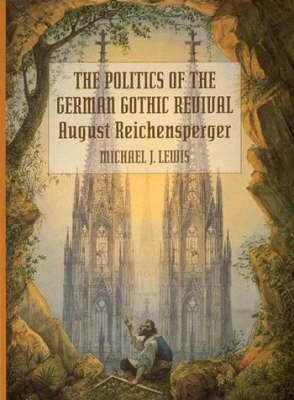Architectural History Foundation Book
1 total work
Winner, Alice Davis Hitchcock Award, Society of Architectural Historians. Although the contribution of August Reichensperger (1808-1895) to the European Gothic Revival has long been recognized, this is the first modern study of his work. It clearly establishes Reichensperger as the major figure in the German neo-Gothic movement, not only through his buildings, but through his writings and manifestos as well. The Politics of the German Gothic Revival is both a biography and a critical study of a designer and theoretician committed to historical fidelity as opposed to a progressive, developmental view of architecture. Reichensperger insisted on masonry construction and, convinced that Gothic architecture reflected laws of geometric order, was suspicious of architectural experimentation and innovation. His contemporaries were widely influenced by his doctrine as well as his building.
Lewis looks at Reichensperger's buildings and ideas in the context of his time, taking up the architect's ties to English Gothic Revival, his activities in the area of architectural education, and the interconnections between Reichensperger's political and architectural ideas and the political, religious, and social institutions of nineteenth-century Germany.
Lewis looks at Reichensperger's buildings and ideas in the context of his time, taking up the architect's ties to English Gothic Revival, his activities in the area of architectural education, and the interconnections between Reichensperger's political and architectural ideas and the political, religious, and social institutions of nineteenth-century Germany.
